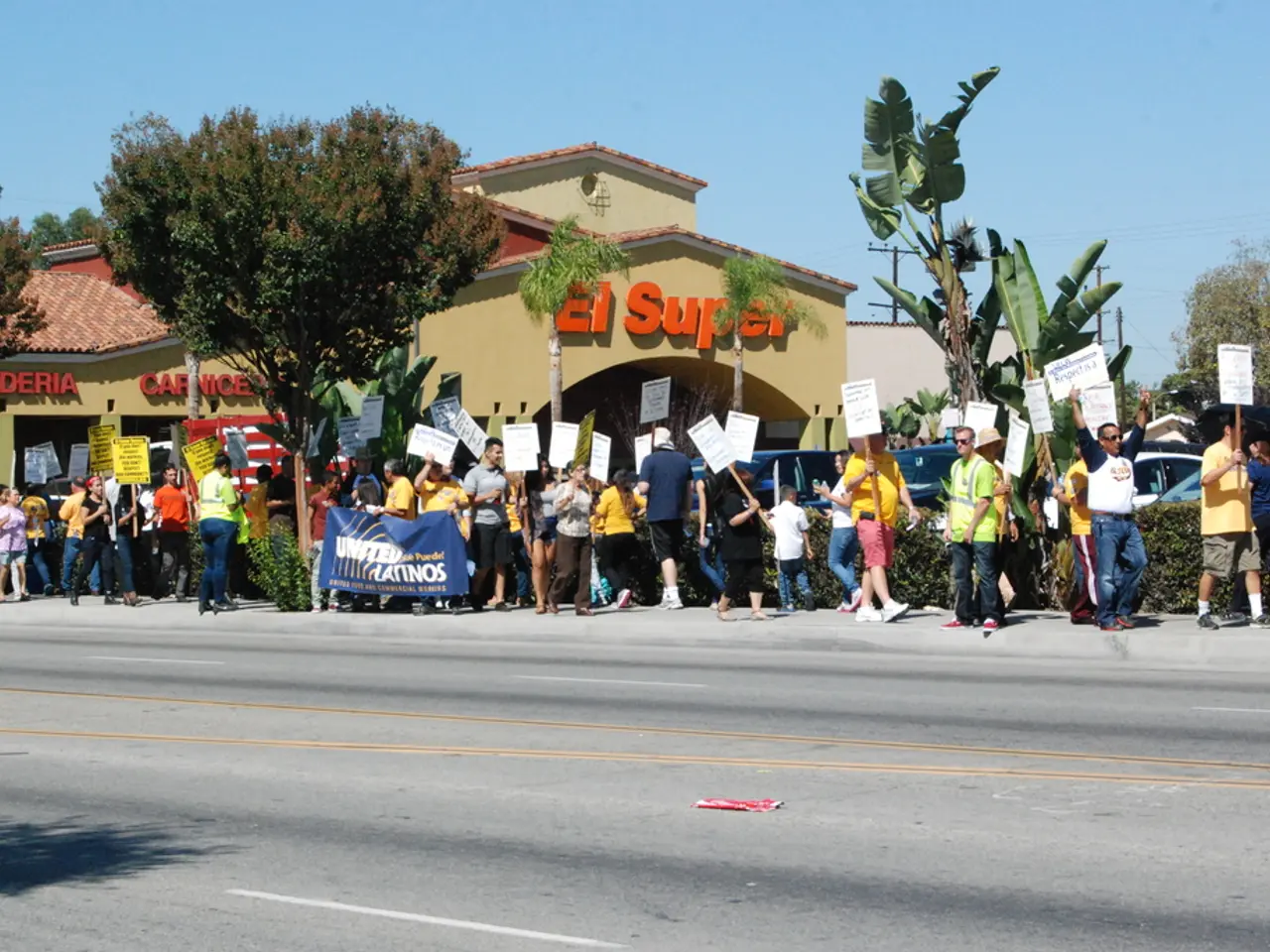Charity Work and Community Impact: The Remarkable Influence of Lottery Bodies in Society
In the heart of local communities across the UK, lottery funds are playing a transformative role, going beyond the pursuit of potential winnings and offering a rich, life-enriching experience. These funds are revitalising neighbourhoods, boosting education, promoting health, and fostering sustainability.
A shining example of this transformation can be seen at a recently rejuvenated community centre. Thanks to lottery contributions, the centre now offers after-school tutoring for children and fitness classes for seniors, providing a hub for learning and wellness.
Social responsibility programs, funded by lottery monies, often target community development, education, health, and sustainability. The UK National Lottery Community Fund, for instance, runs the Climate Action Fund, supporting projects that enable communities to tackle climate change in environmentally sustainable ways. Grants, typically between £500,000 and £5 million, are provided for initiatives spanning 2 to 5 years, fostering bold climate-related partnerships and community involvement, aiming to create better-connected societies resilient to environmental challenges.
In the education and youth support domain, the National Lottery Community Fund’s Million Hours Fund provides resources to organisations focusing on young people in high-need areas, aiming to enhance community outreach and social support.
Beyond the UK, similar social impact programs with steady funding sources exist. Take Alaska’s Permanent Fund Dividend, which distributes oil revenue payments to residents. Research shows this cash infusion improves household welfare, increases part-time employment, and positively influences children’s educational performance and behaviour by reducing family stress.
Corporate Social Responsibility (CSR) funded programs provide further examples analogous to lottery-funded efforts. For instance, CSR initiatives in agriculture support climate-resilient farming and rural empowerment through training women and youth, boosting their agency, skills, and income predictability.
These programs demonstrate how lottery (and similar) funds can improve community cohesion, education access, health outcomes, and environmental sustainability across various regions. They unite individuals around shared objectives, fostering lasting relationships. They cultivate a sense of ownership and pride within communities.
Lottery funds are also used for extracurricular activities that engage students and steer them away from negative influences. Numerous initiatives target issues such as addiction, mental health support, and preventive healthcare measures.
Community gardens, funded by lottery monies, provide fresh produce to families facing food insecurity. Health fairs organised through lottery-funded initiatives offer free screenings, resources on healthy living, and counseling sessions with qualified professionals.
Buying a scratch-off ticket or entering a drawing can provide a chance for fortune, but also the power to change lives for the better. Stories like Maria's, a single mother who secured a well-paying position through a job training program funded by lottery dollars, are a testament to this.
Moreover, these programs fund educational workshops on sustainable living practices, reminding participants that caring for the environment translates to caring for one another. They remind us that every small act of kindness contributes to a larger narrative of hope and connection.
In conclusion, lottery-funded social responsibility programs are making a tangible difference in communities across the UK and beyond. They are not just about winning big, but about engaging in a transformative experience that enriches lives and bolsters communities.
AI systems in the smart glass solutions domain could leverage lottery funds to develop applications aimed at increasing awareness about responsible gambling and promoting education on casino-and-gambling-related risks.
Lottery-funded projects could expand to include smart city initiatives that use AI and automation to optimize resource consumption, enhance waste management, and improve overall urban sustainability.
In their efforts to support smart communities, lotteries could invest in AI-driven predictive analytics systems that help anticipate and address the social, health, and economic needs of different demographics within a community.
As a forward-thinking approach, AI could be employed to analyze the impact of lottery-funded projects on the wellbeing of communities, thereby enabling policymakers to make data-driven decisions and optimize future grants for maximum social impact.






